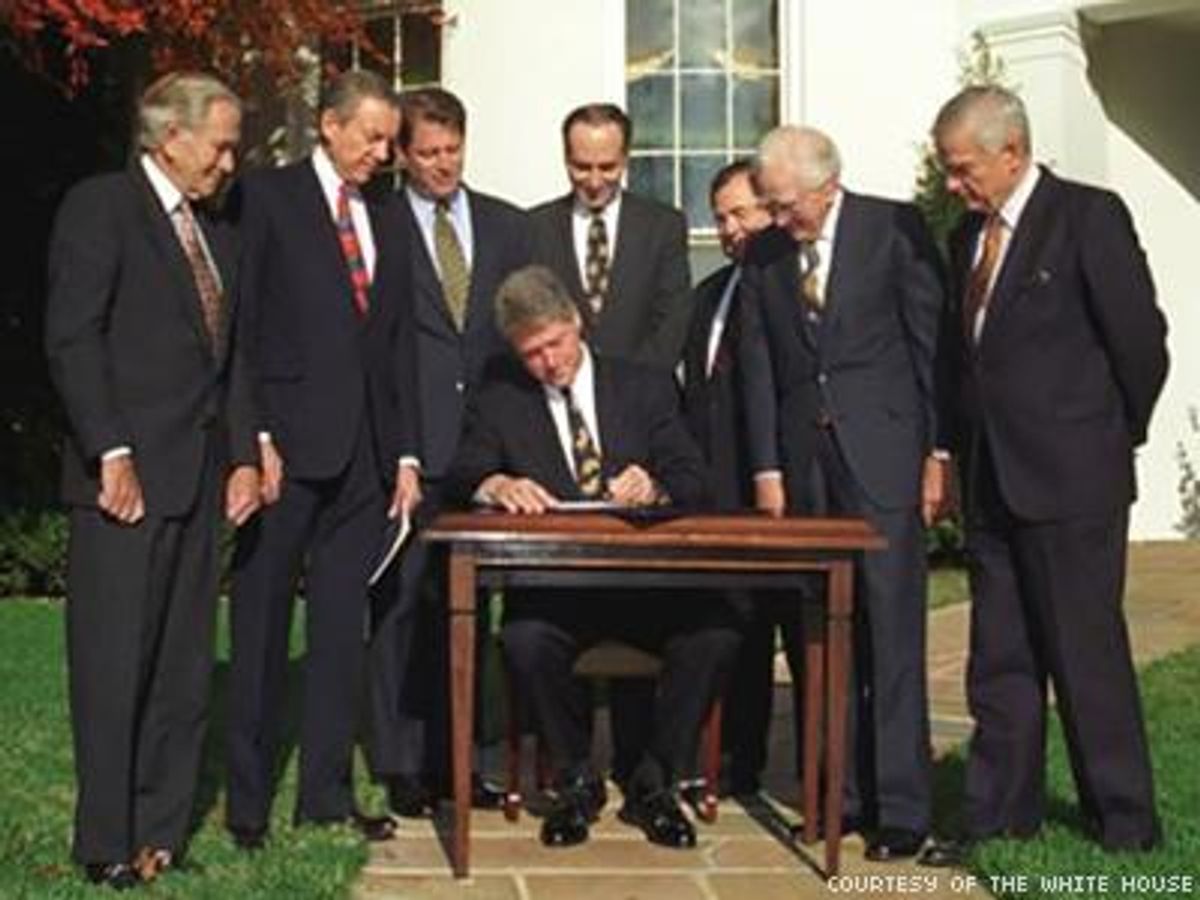The laws now being passed to ennable discrimination against LGBTs have a surprising origin: Bill Clinton and the American Civil Liberties Union.
The first "Religious Freedom Restoration Act" was passed in 1993, and intended to protect tribal religions of indigenous people.
Two incidents prompted the passage of the bill. The first involved the Forest Service's attempt to build a road through sacred land, used by the Yurok, Tolowa and Karok tribes to prepare for burial rites. The second involved two people fired after testing positive for mescaline, a substance used in religious ceremonies.
Following those two cases, an unlikely alliance of left and right-leaning groups formed. The ACLU teamed up with the Traditional Values Coalition, the Christian Legal Society, and several others to craft a bill that would require the government to only limit religious freedom in the face of a compelling governmental interest.
The law easily passed Congress, and was signed by Bill Clinton.
The state-level RFRAs didn't start appearing until the late '90s, when the Supreme Court ruled that the federal law didn't apply to states.
It's a relatively new phenomenon that antigay legislators would latch onto RFRAs as a means to protect discrimination against LGBTs. Initially, RFRA lawsuits concered issues like land use, environmental protection, and taxation.
But the act figured heavily in last year's Hobby Lobby decision. The Supreme Court in its ruling cited the federal RFRA as exempting the company from following certain aspects of federal laws. Since then, the rhetoric around "religious freedom" laws has changed. Lawmakers have increasingly connected RFRA to "protecting" business owners who wish to withhold services from gay and lesbian people.
Plus, the language in the bills themselves has evolved from their federal namesake. An analysis of the Indiana version of the bill compared with the federal version that Gov. Mike Pence says it's intended to mirror shows some major differences, as explained by The Atlantic's Garrett Epps. He writes:
"First, the Indiana law explicitly allows any for-profit business to assert a right to 'the free exercise of religion.' The federal RFRA doesn't contain such language, and neither does any of the state RFRAs except South Carolina's; in fact, Louisiana and Pennsylvania, explicitly exclude for-profit businesses from the protection of their RFRAs....
"Second, the Indiana statute explicitly makes a business's 'free exercise' right a defense against a private lawsuit by another person, rather than simply against actions brought by government."
It's unlikely that the law's original left-leaning supporters could have imagined that it would have been used this way.
Even President Obama has been dragged into the debate, being presented by Pence on Sunday as one of the bill's supporters because he voted in favor of an Illinois version while a state senator. Activists are quick to point out that Illinois includes gender identity and sexual orientation in its non-discrimination laws -- something Pence refuses to do as a way of clarifying his RFRA won't discriminate.
The president's press secretary, Josh Earnest, has repeatedly decried the Indiana law as discriminatory. But when asked on MSNBC this morning whether the the Human Rights Campaign is calling on Obama to speak out personally against the Indiana law himself, president Chad Griffin said "absolutely."
"Absolutely, we are encouraging everyone to stand up -- business leaders, Democrats, Republicans, faith leaders, and the White House," he said, before noting the anti-discrimination law makes Illinois a strange comparison for Pence. "There is a big difference. The law that was passed in Illinois, that's a state that has protections for LGBT folks. So once again the governor was misleading the public in terms of his own political gain."



















































































